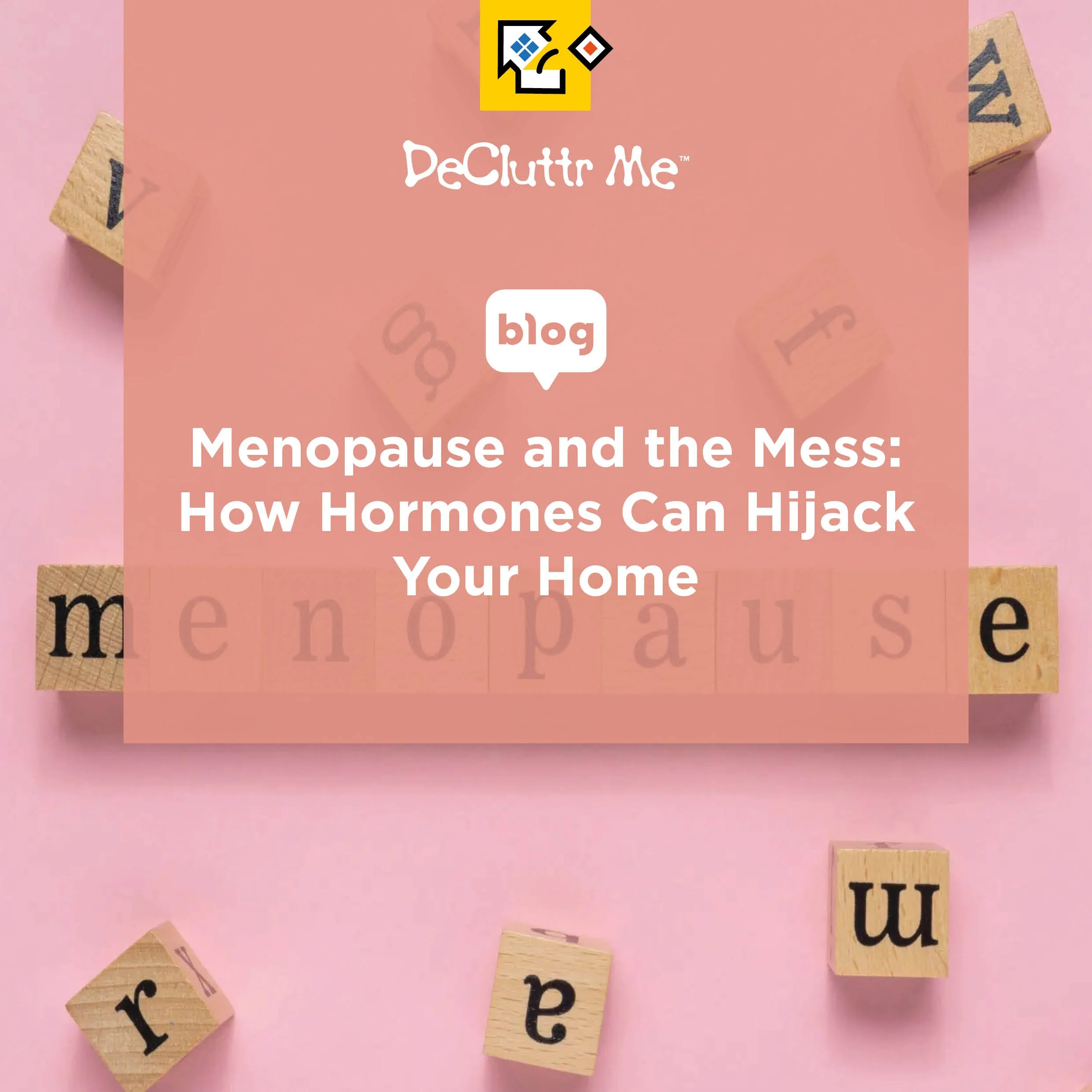Menopause and the Mess: How Hormones Can Hijack Your Home
Many women are surprised to find that during menopause, their once tidy homes begin to feel harder to manage. You may notice piles of clutter growing, unfinished tasks lingering, or an overall sense of disorganisation creeping in. At DeCluttr Me, we know this is not about laziness or lack of care. Hormonal changes can have a real impact on your ability to stay focused and keep up with daily routines.
How hormones affect your home
During menopause, fluctuating oestrogen and progesterone levels can affect mood, concentration, and energy. You might experience brain fog, forgetfulness, or simply feel too tired to tackle the clutter that builds up. What used to feel easy suddenly takes more effort.
When your mind feels scattered, your home can start to mirror that internal state. Small tasks like sorting mail or clearing the kitchen can feel overwhelming, and clutter quickly begins to accumulate. This cycle can make you feel even more out of control and anxious.
Recognising the signs
You might find that clutter builds up in specific ways during this stage of life. Common signs include:
Paper piles that seem to multiply overnight
Half-finished organising projects
Drawers full of things you keep meaning to sort
Difficulty making simple decisions about what to keep or let go of
These are all normal reactions to the hormonal shifts happening in your body. The good news is that with a few gentle strategies, you can regain clarity and calm.
Gentle steps to get back on track
Start small and stay kind. Choose one drawer, shelf, or small area to work on at a time. Avoid tackling big spaces when your energy is low.
Write things down. Keep a notepad or digital list nearby to capture reminders. Writing helps clear your head and keeps you focused.
Work in short bursts. Set a timer for ten or fifteen minutes and stop when it goes off. Regular, short sessions are easier to maintain than long, exhausting ones.
Create visual calm. Clear one surface in each room and keep it clutter-free. These calm spots will help your brain rest even when other areas still need attention.
Ask for help when needed. Whether from a professional organiser or a supportive friend, a second pair of hands can make a big difference.
Supporting your wellbeing
Decluttering during menopause is about more than tidying. It is about regaining control when your body and emotions feel unpredictable. A calm environment helps reduce stress and supports better sleep and focus, both of which can be disrupted by hormonal changes.
Your home should be a place of comfort, not chaos. If menopause has made you feel out of balance, start with small, achievable decluttering steps. Each bit of progress brings a little more peace, confidence, and control back into your life.

